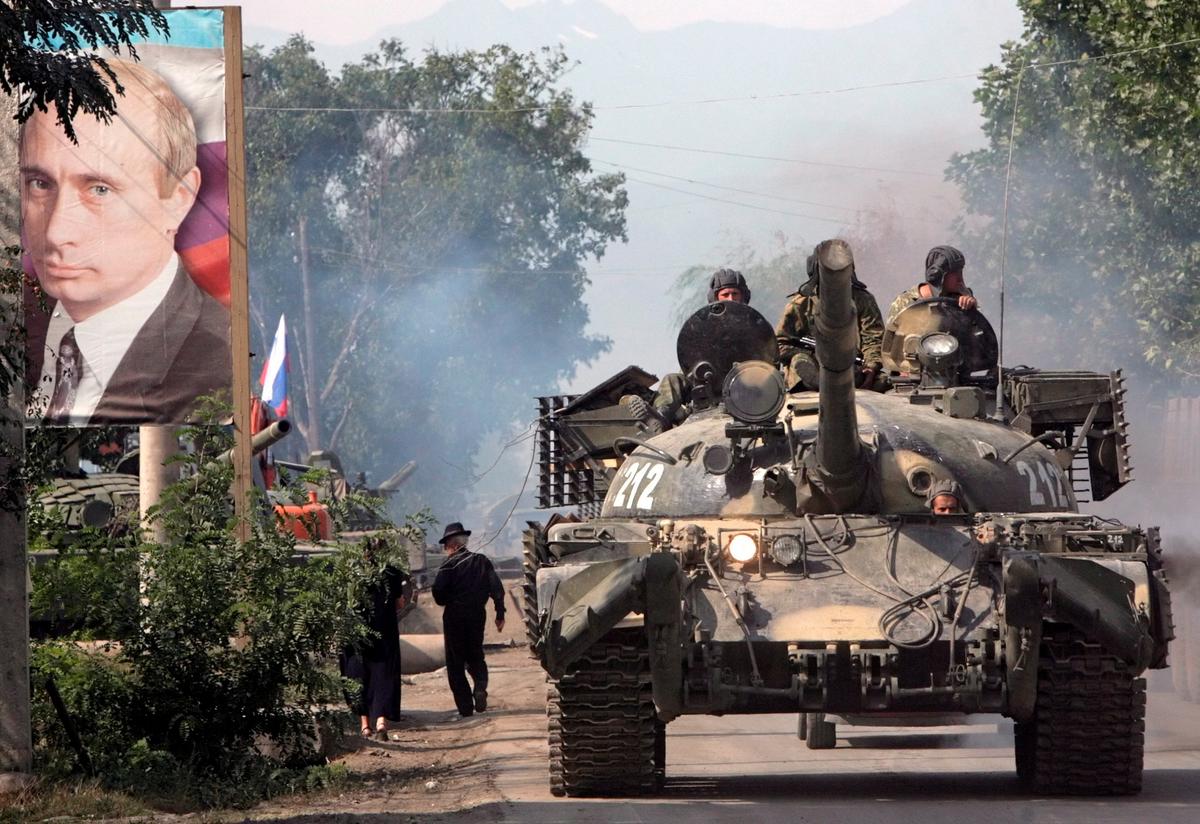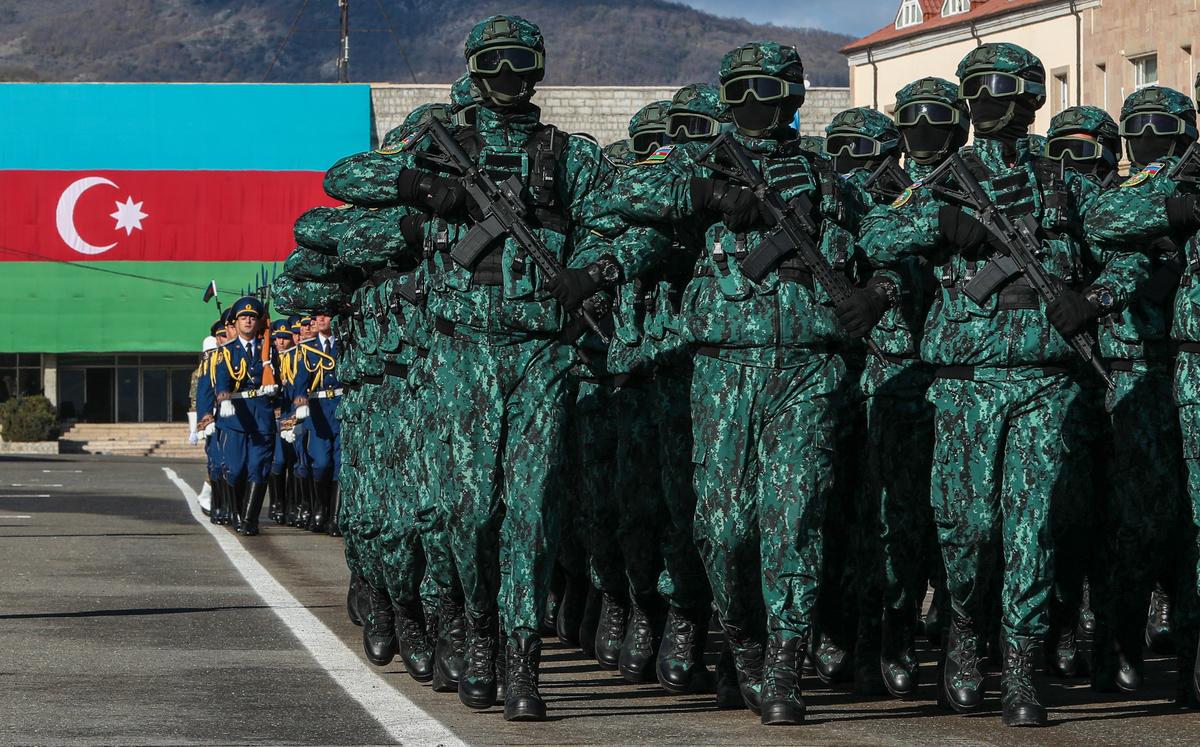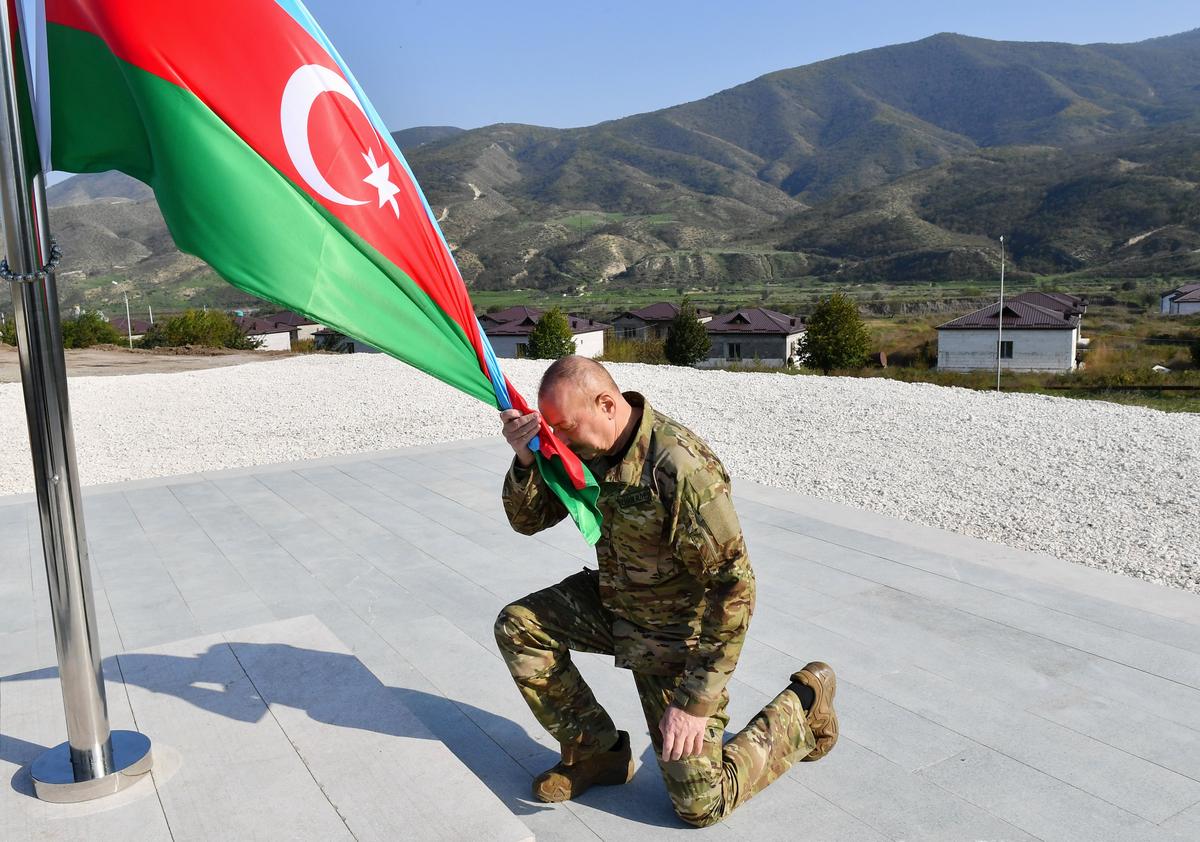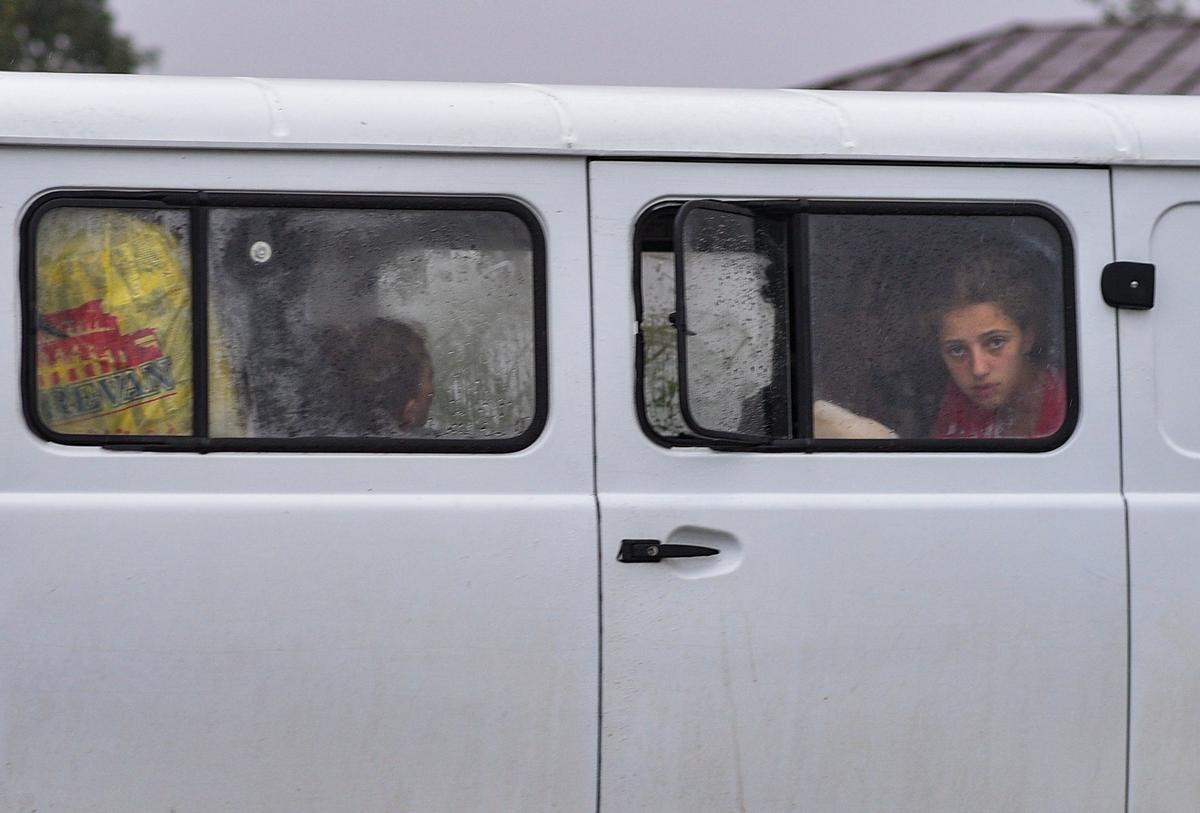As Russia’s war in Ukraine enters its third year, it’s striking to see just how much the country’s once unassailable influence in the South Caucasus has been undermined. The European Union’s decision to grant Georgia EU candidate status earlier this month caps off a year of seismic change in a geopolitically vital region that Russia still sees through a problematically colonial prism.
In September, Azerbaijan’s recapture of Nagorno-Karabakh from the Armenian separatist authorities that had controlled the territory for over 30 years changed the balance of power in the region, and the subsequent effort by Armenia to seek new security guarantors in the US and Europe in the face of Russian inaction over Karabakh are further signs of Russia’s waning authority.
Tough Neighbourhood
Given its neighbours, it’s hardly surprising that the history of the South Caucasus has been one of dominion and conquest by the triple threat of the Russian, Persian and Ottoman empires that surrounded the region for centuries. Since Georgia, Armenia and Azerbaijan gained their independence in 1991, Russia and Turkey have remained key power brokers.
Russia has worked to reinforce its role as a regional hegemon by orchestrating a series of disputes and conflicts in the South Caucasus that it has then regulated, acting mercurially and unpredictably towards all three nations as well as the region’s three breakaway republics as it carefully calibrated every step to serving its own foreign policy agenda.

A Russian tank passes a portrait Vladimir Putin as it drives through Tskhinvali, South Ossetia on 20 August 2008. Photo: EPA / MAXIM SHIPENKOV
Russia’s military occupation of the Georgian breakaway territories of Abkhazia and South Ossetia in 2008 ensured it retained the option to destabilise Georgia at the drop of a hat. Russia has also played a central role in both creating the bloody conflict between Armenia and Azerbaijan over Nagorno-Karabakh and regulating it with the peacekeeping troops it deployed there.
The war in Ukraine, however, has allowed Russia’s two most indispensable partners, Turkey and Iran, to extract a high price for their tolerance of Russia’s meddling in the region. As a result, Turkey has significantly strengthened its position in the South Caucasus, while Iran looks to be on the verge of acquiring nuclear weapons — in no small part thanks to Russian expertise.
Europe’s foothold
As the only country in the South Caucasus with access to the Black Sea, Georgia can potentially sideline both Russia and Turkey from a logistical standpoint by building a deep-water port, which would enable the direct export of goods and energy from Georgia to Europe.
Controlling the Baku-Tbilisi-Ceyhan oil pipeline, which connects the Caspian Sea via Azerbaijan and Georgia to Turkey, is Russia’s strategic priority. It was Russian pressure that led the Georgian government to abandon its plans for the construction of a deep-water port in Anaklia in 2020 — although the project has subsequently been given the go ahead again.
Despite a clear thaw in Georgian-Russian relations under the incumbent Georgian Dream government, European integration remains the country’s top priority, to the obvious irritation of the Kremlin. Russian officials periodically make both veiled and explicit threats to Georgia, suggesting that Russia could destabilise it at any time by activating the frozen conflicts in Abkhazia and South Ossetia.
This makes the European Parliament’s recent decision to grant Georgia official candidate status an even more significant show of support for the country’s political stability. In Georgia, this newfound status is seen not only as part of Georgia’s continued economic development, but also as a mechanism to strengthen its political security.
For the European Union, consolidating its position in Georgia would mean controlling a crucial transport hub connecting potential suppliers of energy and other goods in Asia with Europe.
The Karabakh question
The Nagorno-Karabakh conflict, which had been smouldering for 35 years until September 2023, was Russia’s main tool for exerting its control over Armenia and Azerbaijan. Recognising the risks that came with starting the war in Ukraine and understanding the strategic necessity of further solidifying its positions in Azerbaijan, Russia facilitated Azerbaijan’s military aggression against Nagorno-Karabakh despite being Armenia’s nominal ally.

An Azerbaijani victory parade is held in Khankendi, known to Armenians as Stepanakert, the former capital of Nagorno-Karabakh on 8 November 2023. Photo: EPA-EFE / STRINGER
Russia’s plan was to position itself as the guarantor of the safety of the Armenian population living in Nagorno-Karabakh as Azerbaijan reasserted its control over the territory. To do so Russia deployed a peacekeeping force to the region after the Second Nagorno-Karabakh War in 2020.
The Armenian population of Nagorno-Karabakh was essentially taken hostage by the Russian peacekeepers in a move aimed at bringing Armenia to heel in the wake of its brokering of a comprehensive and enhanced partnership agreement with the European Union. Russia’s primary demand was for its Federal Security Service to be given control over the transit of goods from Azerbaijan to Turkey through Armenia.
But things didn’t pan out quite as Russia had planned. Armenia did not agree to cede its territory to Russia, a decision that was supported by the United States. Meanwhile, the Azerbaijani authorities began demanding more territorial and political concessions from Russia in Nagorno-Karabakh.
Russia was only too happy to “collaborate” with Azerbaijan in exchange for stable transit of its energy to Turkey. But this only further whetted the Azerbaijani government’s appetite, and military pressure escalated into a total blockade of the Armenian population in Nagorno-Karabakh, leaving the region’s residents deprived of food, gas, and electricity for nine months.
In September, Azerbaijan decided to resume hostilities and launch a new attack on Karabakh, ending the nine-month-long blockade. Russian forces, presumably expecting that Armenia would go to war with Azerbaijan and request Russia’s assistance, did not intervene.

Azerbaijani President Ilham Aliyev hoists the national flag over the recaptured village of Askeran in Nagorno-Karabakh, 15 October 2023. Photo: EPA-EFE / STRINGER
As a result, the entire Armenian population of Nagorno-Karabakh — around 100,000 people at the time hostilities resumed — was forcibly displaced.
The vast majority of those displaced found refuge in Armenia, where the government initiated a massive EU- and US-sponsored campaign to integrate them. However, the conflict failed to spill over into Armenia itself, and so Russia was unable to demand Armenia yield a transit “corridor” through the country for use by Russia.
Yerevan faces harsh truths
Armenia has long been seen by observers as a Russian proxy, and its active participation in Russian-led organisations such as the Collective Security Treaty Organization (CSTO) and the Eurasian Economic Union only strengthened that reputation. However, Russia’s failure to come to Armenia’s aid during the war in Karabakh was seen in Yerevan as a clear betrayal and a sign that Russia was no longer willing or able to guarantee its security.
This realisation, further reinforced by a series of disagreements, snubs and bad-tempered diplomatic exchanges between Moscow and Yerevan this year, prompted the Armenian government to begin intensive efforts to deepen its relations with its other partners — primarily with the US, UK, France and Germany, but also with the EU as a whole as well as India.
Russian state propaganda now depicts Armenia as the most “anti-Russian” country in the region despite Moscow retaining its military base in Gyumri, which it has leased until 2044.
Armenian officials have consistently missed meetings of the Russia-led CSTO defence alliance, and France now provides the country with military support. The issue of Armenian refugees from Nagorno-Karabakh is discussed in the European Parliament, as well as in the US Congress and Senate.
In an attempt to improve its fraught relations with its neighbours, the Armenian government has proposed a radical plan for the region it calls the Crossroads of Peace.
The plan involves Armenia establishing diplomatic relations with Turkey and Azerbaijan and building new transport infrastructure through its own territory to connect Iran with Georgia and Azerbaijan with Turkey. Alongside Georgia’s logistical capabilities, the initiative has the potential to radically reshape the logistics of the entire South Caucasus.

Ethnic Armenians fleeing Nagorno-Karabakh arrive at a registration centre at the town of Kornidzor, Armenia, 25 September 2023. Photo: EPA-EFE/NAREK ALEKSANYAN
Predictably, the scheme has been met by fierce opposition from the Russian government, which fears that it would cement Russia’s loss of its influence not only over Armenia but over the South Caucasus as a whole.
Azerbaijan’s choice
The US maintains close ties to Azerbaijan’s dictatorship, and yet Azerbaijan remains the weakest link in the South Caucasus. President Ilham Aliyev must now decide whether he will comply with international law, make peace with Armenia and renounce claims to its territory, and restore the rights of the ethnic Armenian inhabitants of Nagorno-Karabakh, including their right to self-determination. Should he decide not to, he could well become the Gaddafi of the South Caucasus.
Should Aliyev embrace change and agree to abide by international law, it’s hard to say how Russia would react, whether Erdoğan’s Turkey would support him, or what Iran would then do. Only one thing is certain: fresh difficulties await the Azerbaijani government in the coming year.
Washington’s diplomatic moves in the South Caucasus look more convincing than Moscow’s, and cooperation with the United States and the European Union has the potential to transform the region, should the political will on the part of Georgia, Armenia, and Azerbaijan exist.
However, post-Soviet history has shown that any meaningful paradigm shift in the South Caucasus needs to be backed by force — without it, the region’s autocrats will simply crush the nascent shoots of freedom and drown them in blood.

